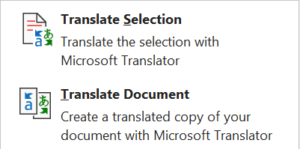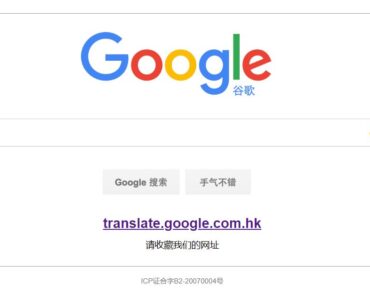It seems that nowadays, every big tech company has its own machine translation (MT) system which it uses for both internal and external purposes. Here is a partial list of these deployments:
Google. Anybody who spends time on the Internet knows about Google Translate. Google is one of the pioneers of MT and is by far the most widely used. It supports over 100 languages! It can be accessed directly online, or indirectly through applications that use the Google Translate API. Use of the online application is free, but hooking up to the API is not.

Microsoft. In a distant second place comes Microsoft. Bing Translator does not support as many languages as Google, but still supports a whole bunch of languages. Similarly to Google, Bing Translator can be accessed directly online or via API. One of the biggest advantages is that Bing Translate can be accessed directly from within Microsoft Office apps like MS Word. So you can translate entire documents for free directly from Word and retain the page layout and other formatting in the document.
Amazon. Amazon Translate does not offer an online version like Google or Microsoft, just through API. They do offer a free tier of a limited number of words, but at Amazon (as everyone knows), nothing is really free.
Apple. Apple has a translation app which is bundled into certain versions of the iPhone operating system. There are also third-party apps which can be downloaded from the Apple Store.
Facebook. Facebook is a relatively late arrival to the MT community. They seem to be making up for lost time and have created their own MT project called Translate. To this end they have assembled a large team of NLP scientists as part of their AI and machine learning team. Their FLORES-101 system is open source and Facebook has made this system available to the public.
We’re making FLORES-101 publicly available because we believe in breaking down language barriers, and that means helping empower researchers to create more diverse (and locally relevant) translation tools
The main feat of Facebook Translate is the ability to translate from any language to any language without using English as a go-between. They also say that their technology allows them to roll out high quality MT systems for obscure languages (or what they call low-resource languages, those who do not have a huge base of training corpora).
Why is Big Tech so interested in MT?
First of all, in the big scheme of things the investment in MT is not huge. Anyone who has cruised a localization industry conference knows that MT engines are a dime-a-dozen and so are PhD level scientists who are experts in the field. Not to denigrate these scientists, all of whom are talented, dedicated and smart people. But for a company like Google or Amazon, hiring an MT R&D chief and a bunch of scientists is not a huge expense. Neither is buying an existing MT company with its development team. And investing in MT pays off. The Internet is a global community and everyone wants to connect in their own language. The cost of professional translation is huge and also time consuming. It is easy to see how these tech giants justify the expense of MT development as a cost saving measure if nothing else.

Another point to consider: tech futurists have been talking about a universal communicator for years. This technology can be a game changer and the company that is successful with this can write their own ticket. MT, combined with AI and speech-to-speech may be the foundations for this very concept.
What’s so great about Facebook’s MT?
First of all, Facebook seems to be doing a great thing by providing their system to the public as an open source solution. Not that the general public can really use it unless they have a robust IT and science team. But this approach seems to be magnanimous on the part of Facebook.
Another thing to consider is that any person or company that has a Facebook page will be able to provide that page in many languages. So let’s say for example that you are a hotel owner and have a Facebook page. You can offer that page to your customers in any country and in (nearly) any language. This is an amazing selling point for Facebook. Instead of a developing a costly website and then translating your website using professional translation, create a multi-language Facebook page using their state-of-the are AI MT.
In Summary
AI-based MT technology is making major advances and is being adopted by all the big tech companies. The improving quality will create new opportunities for Language Service Providers (LSPs) and professional translators, and will also make the Internet a more global place.





